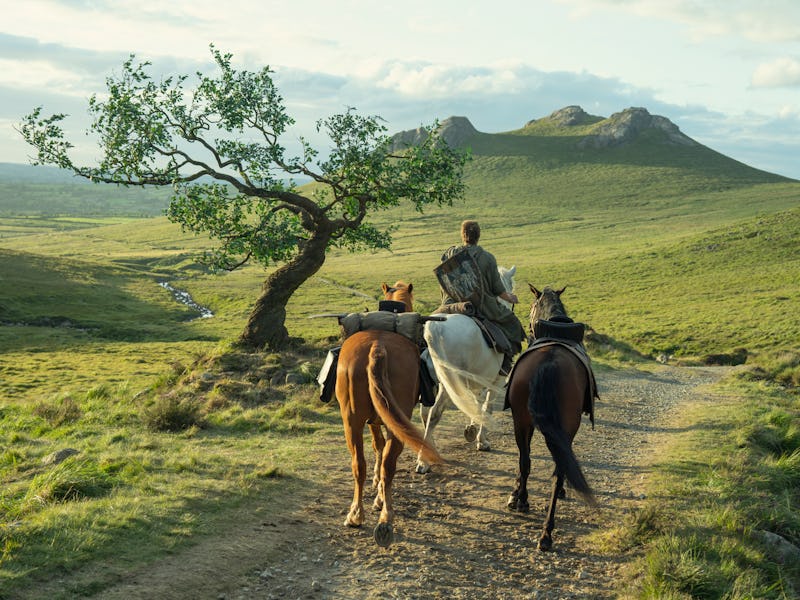A Knight Of The Seven Kingdoms Is Making A Big Change From Game Of Thrones
Keeping it simple.

If you want to curse a television series, just call it a “Game of Thrones spinoff.” In the six years since the HBO fantasy series ended, HBO had a staggering 10 spinoffs in some stage of development, from a Jon Snow sequel series to a distant prequel set 5,000 years in the past. Of those, only two spinoffs made it to production: House of the Dragon, which has released two of its intended four seasons, and the upcoming Knight of the Seven Kingdoms.
As a prequel, House of the Dragon’s goal has been to recapture the epic fantasy feeling of the original show. A Knight of the Seven Kingdoms, however, is going in the complete opposite direction, taking a more intimate tone and omitting even some of the most basic elements that made Game of Thrones special. Will such a big swing help it stand out, or will it fail to find an audience?
In an Entertainment Weekly feature, Knight of the Seven Kingdoms showrunner Ira Parker discussed down to the smallest detail just how different the series is from House of the Dragon. Game of Thrones and House of the Dragon both had long opening title sequences scored by Ramin Djawadi, but Seven Kingdoms doesn’t have an opening title sequence at all.
Sam Claffey as Ser Duncan the Tall, aka “Dunk,” in A Knight of the Seven Kingdoms.
“The title sequences on the original [Game of Thrones] and House of the Dragon are big and epic and incredible,” Parker said. “Ramin Djawadi’s score is orchestral and large and beautiful. That's not really Dunk’s M.O. He’s plain and he’s simple and he’s to-the-point. He doesn't have a lot of flash to him.”
“Dunk” refers to Ser Duncan the Tall (Sam Claffey), the hedge knight who roamed Westeros in between House of the Dragon and Game of Thrones. He’s well removed from the geopolitical games of King’s Landing, and the first of George R.R. Martin’s Dunk and Egg novellas adapted by the TV series is more concerned with tournaments and acts of chivalry than dark drama. According to Parker, viewers shouldn’t expect the story hallmarks of the previous series.
“Nobody's thinking about magic,” he said. “This could basically be 14th-century Britain. This is hard nose, grind it out, gritty, medieval knights, cold with a really light, hopeful touch. It's a wonderful place to be. We are ground up in this series; we are starting right at the bottom. We're not with the lords and ladies, the kings and queens.”
Don’t expect dragons in A Knight of the Seven Kingdoms.
While that could be seen as a downgrade, Seven Kingdoms has a chance to fill a much-needed void in the franchise. Game of Thrones was a complex combination of stories about royals and commoners: one scene could be about the high-powered Lannisters, while the next could be about Brienne and humble Pod. House of the Dragon, on the other hand, is almost exclusively about the highbrow squabbling of royals and their dragons.
A Knight of the Seven Kingdoms can make up for that shift by providing a grounded story that leaves the rulers behind to focus on everyday life in Westeros. These stories may not change the future, but every life is an adventure, even in a land of dragons.